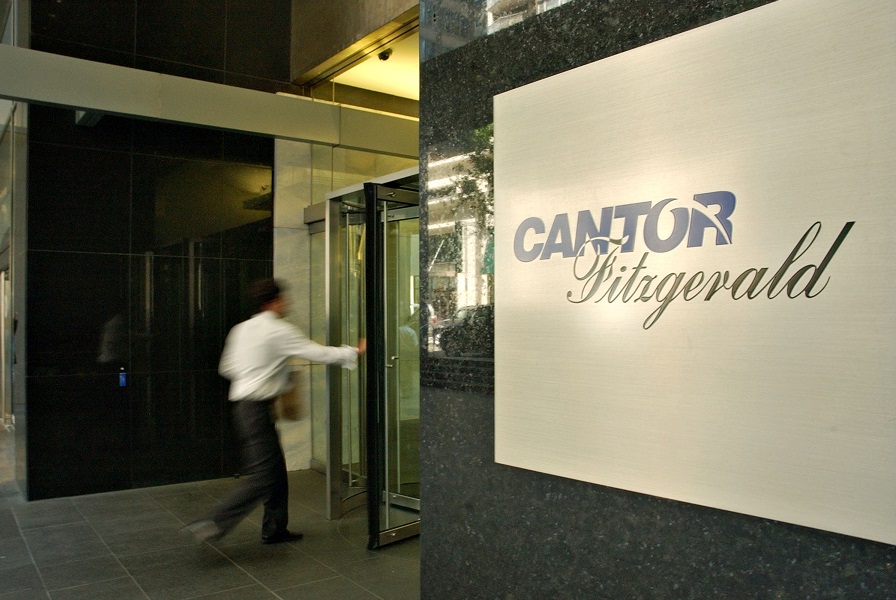Cantor Fitzgerald, a prominent financial services firm, has agreed to pay a $6.75 million fine to the Securities and Exchange Commission (SEC) to settle allegations of misleading disclosures. The SEC claims that the company caused two special-purpose acquisition companies (SPACs) under its control to make false or incomplete statements to investors ahead of their initial public offerings (IPOs). The settlement marks another instance of regulatory scrutiny in the booming SPAC market and places a spotlight on corporate accountability in financial markets.
Here's ads banner inside a post
The Allegations: Misleading SPAC Disclosures
The SEC’s investigation revealed that Cantor Fitzgerald was involved in two SPACs that misrepresented or failed to disclose critical information to potential investors. According to the SEC, these omissions were related to conflicts of interest, projected revenues, and other material details crucial for making informed investment decisions.
“These misleading disclosures deprived investors of the transparency they are entitled to in evaluating risks and rewards,” the SEC said in a statement. The settlement is meant to serve as a reminder to financial institutions about the importance of full transparency and accurate disclosures, particularly in the SPAC market, which has faced heightened scrutiny in recent years.
Cantor Fitzgerald’s Response and Settlement
Cantor Fitzgerald has neither admitted nor denied the SEC’s findings but agreed to pay the $6.75 million penalty to resolve the matter. In a statement, the company emphasized its commitment to compliance and transparency, stating, “We are pleased to have resolved this matter with the SEC and remain focused on upholding the highest standards of integrity in our business practices.”
Here's ads banner inside a post
The fine is part of the SEC’s broader effort to ensure accountability in the SPAC market, which surged in popularity during 2020 and 2021 but has since faced increased regulation due to concerns over speculative investments and inadequate disclosures.
The Role of Howard Lutnick
Howard Lutnick, Cantor Fitzgerald’s chairman and CEO, has also come under the spotlight as President-elect Donald Trump’s nominee for secretary of commerce. While the SEC charges do not directly implicate Lutnick, his leadership at Cantor Fitzgerald raises questions about how the firm’s practices might reflect on his suitability for a high-profile government role.
Critics have voiced concerns over the timing of the settlement and its potential implications for Lutnick’s confirmation process. Supporters argue that the SEC matter is unrelated to his personal conduct and should not affect his nomination.
Here's ads banner inside a post
The Broader Context: SPACs and Regulatory Crackdowns
SPACs, also known as “blank-check companies,” are shell corporations created to raise capital through an IPO for the purpose of acquiring another company. While SPACs offer an alternative to traditional IPOs, they have faced criticism for a lack of transparency and accountability.)
The SEC has been ramping up enforcement actions in the SPAC space, targeting misleading projections and conflicts of interest. Chair Gary Gensler has repeatedly emphasized the need for stronger investor protections in SPAC transactions. “When companies fail to provide clear and accurate information, it undermines investor confidence and the integrity of our markets,” Gensler stated.
Implications for Cantor Fitzgerald
The $6.75 million fine represents a fraction of Cantor Fitzgerald’s financial resources, but the reputational damage could be more significant. The firm’s involvement in misleading SPAC disclosures could deter investors or partners who prioritize transparency and regulatory compliance.
However, Cantor Fitzgerald’s swift settlement of the charges indicates an effort to move past the issue and maintain its standing in the financial industry. The company remains a major player in capital markets, with diverse operations spanning investment banking, institutional brokerage, and real estate services.
Looking Ahead
As the SEC continues to tighten regulations on SPACs, financial institutions will face increased pressure to ensure full compliance with disclosure requirements. The Cantor Fitzgerald case serves as a warning to other firms about the potential consequences of inadequate or misleading communication with investors.
For Cantor Fitzgerald, the resolution of this case could pave the way for the company to focus on rebuilding trust and maintaining its competitive edge in the market. For Howard Lutnick, the outcome adds a layer of complexity to his upcoming confirmation process as secretary of commerce, where his leadership and decision-making will likely face intense scrutiny.
Conclusion: A Cautionary Tale for the Financial Industry
The $6.75 million settlement between Cantor Fitzgerald and the SEC highlights the critical importance of transparency and accountability in financial markets. As SPACs remain a popular but contentious investment vehicle, regulatory enforcement is expected to intensify.
This case not only underscores the risks of cutting corners in disclosure practices but also serves as a reminder to financial leaders about the broader implications of their decisions. For Cantor Fitzgerald, the fine is a costly but necessary step toward regaining investor confidence and demonstrating its commitment to ethical business practices.

